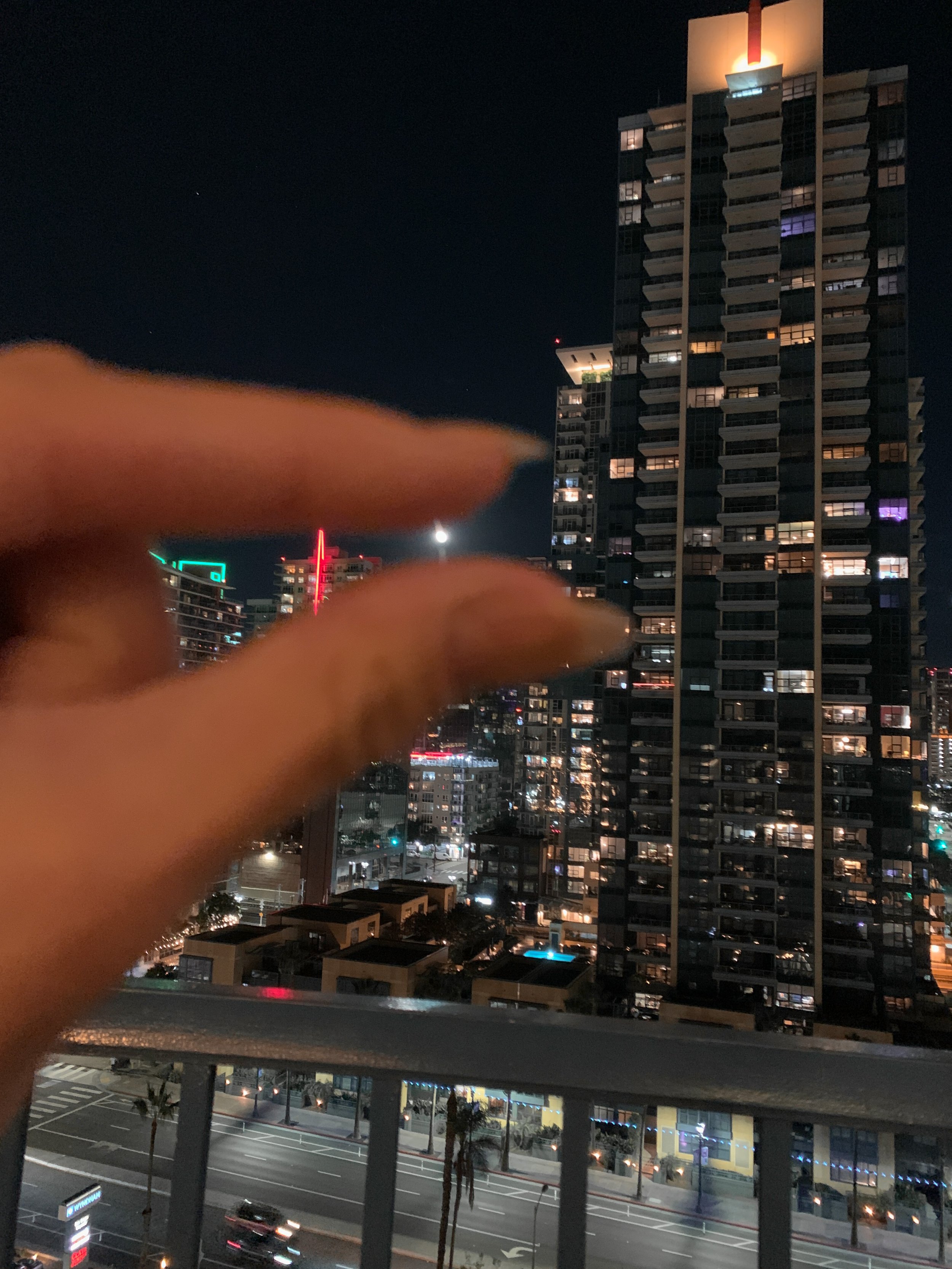We live in a world where alcohol consumption is viewed as the norm. However, many people are awakening to how it is causing more problems than benefits in their lives. While planning social activities often seems to revolve around drinking, the need to detach from the activity is becoming more apparent due to its negative effects on people’s lives and their desire for a healthier lifestyle.
Not surprisingly, the desire for sobriety has been on the rise recently. Young adults aged 18 to 34 have reduced their alcohol consumption by 10% in recent years, choosing an alcohol-free lifestyle instead. This shift is motivated by desires for improved health, mental clarity, and deeper, alcohol-free relationships.
In this article, we'll explore practical steps for embracing social events, nurturing relationships, and infusing everyday moments with meaning—no alcohol required. One deserves to feel socially confident and fully present without needing liquid courage. The most rewarding adventures still lie ahead on the journey toward mindful living.
No. 1
The Tangible Benefits of an Alcohol-Free Life
The physical benefits of alcohol-free living are far-reaching. Hangovers become less frequent and less debilitating as alcohol's toxins are removed. Energy levels naturally increase and sleep quality improves with sobriety. Brain functioning rebounds as the depressive effects of alcohol diminish. Concentration, learning, and memory sharpen without alcohol interfering with cognitive processes.
Below is data illustrating the benefits of alcohol-free living:
Here are a few key tangible benefits of an alcohol-free life:
Improved Sleep Quality - Alcohol disrupts sleep cycles while avoiding alcohol can lead to deeper, more restful sleep.
More Energy - Less "hangover" fatigue from alcohol allows natural energy levels to increase.
Better Concentration - Alcohol hampers cognition and memory, while an alcohol-free brain functions at a higher level.
Healthier Liver - The liver can fully heal and regenerate without daily alcohol intake. The risk of liver disease is greatly reduced.
Lower Cancer Risk - Alcohol is linked to increased risks of certain cancers, especially breast and colon cancers. Eliminating alcohol can lower these risks.
Healthier heart - Excessive drinking raises blood pressure and harms the heart. An alcohol-free life supports better cardiovascular health.
Strengthened Immune System - Alcohol suppresses immune functioning, making the body more susceptible to infections. Avoiding alcohol bolsters immune defenses.
Improved Mental Health - Alcohol is a depressive drug. Removing it can boost mood and alleviate anxiety and depression.
Weight Loss - Alcohol is high in empty calories. Going alcohol-free helps many people lose excess weight.
Overall, nearly every aspect of physical health and well-being grows more vibrant without alcohol's constant presence in the body. The benefits of an alcohol-free life go well beyond the physical.
Relationships, finances, productivity, and overall quality of life also stand to improve greatly without alcohol interference. As the countless benefits of sobriety accumulate and become noticeable, commitment to the alcohol-free path strengthens.
No. 2
Experience Life Fully Present and Joyful
Beyond the physical changes lie deeper psychological shifts sobriety facilitates. With the lifting of alcohol's numbing effect, life can be experienced more vividly and appreciated fully.
Meaningful and Genuine Connections - No longer are moments bracketed by drinking triggers or dampened by drunkenness. Social outings become genuinely enjoyable again, centered around meaningful connections rather than drinking habits.
Deeper Communication - Conversations flourish uninhibited by alcohol's effect of narrowing focus.
Creativity - Creativity expands as cognitive abilities rebound.
Productivity - Productivity increases with more hours reclaimed from drinking and hangovers.
Interests outside of drinking become invigorating again. Immersing fully in hobbies and activities sparks a sense of flow. Simple joys, like savoring morning coffee or going for a bike ride, take on new levels of fulfillment. Above all, life feels more vibrant without alcohol's numbing filter.
If you are struggling with alcohol dependence, seeking guidance from a local alcohol detox near me can help you locate professional resources and support groups to assist you on the path toward sobriety.
Here are some key areas of life that are enhanced with sobriety:
Immersing fully in hobbies and activities sparks a sense of flow. Simple joys, like savoring morning coffee or going for a bike ride, take on new levels of fulfillment. Life feels more vibrant without alcohol's numbing filter.
Other benefits that arise include:
Improved sleep quality and healthier routine
Clearer thinking and increased motivation
Financial savings from less money spent on alcohol
Reduced anxiety and better ability to cope with stress
Heightened self-confidence and self-esteem
In early sobriety, withdrawal symptoms like headaches may arise as the body detoxes. A natural detox headache remedy to help alleviate discomfort during this transition is necessary. With sobriety, everyday moments become infused with newfound inspiration and meaning.
Without living life through an alcoholic haze, there's a deeper sense of purpose and direction. By lifting the depressant veil of intoxication, the true colors of life shine brighter. The future feels hopeful rather than bleak. Doors to growth and self-actualization open wider.
Ultimately, sobriety facilitates living each moment more fully—unfiltered, and genuinely present. Life is embraced in its wholeness, with all its peaks and valleys. Hardships feel less heavy. Joy feels lighter. Existence regains its richness when it is no longer muted by alcohol.
No. 3
Build Community and Relationships Centered on Sobriety
With sobriety, developing authentic human connections often becomes a priority over drinking-based socializing. Seeking out others pursuing alcohol-free lifestyles feels comforting, offering camaraderie on the path. Sober communities allow friendships to form organically around shared interests, values, and support—not partying habits.
A mainstream culture shift towards more mindful drinking and alcohol-free spaces welcomes sober individuals as well. Yoga studios, recreational clubs, healthy cafes, and other venues recognize the needs of non-drinkers. And, dedicated sober groups provide the deepest sense of belonging.
Mutual understanding of sobriety's challenges breeds closeness.
Experiences are shared without judgment.
Communication, vulnerability, and emotional availability become the conduits for bonding within sober circles. Listening and supporting each other's growth cements strong foundations.
Meaningful shared activities, volunteer work, book clubs, and events designed for sober individuals enhance connections further. Gradually, nourishing social networks emerge, centered wholly on the alcohol-free lifestyle versus drinks.
Other meaningful ways to connect include:
Recovery meetings and group therapies
Designated sober housing communities
Online groups and forums
Listening and supporting each other's growth cements strong foundations. Meaningful shared activities, volunteer work, book clubs, and events designed for sober individuals enhance connections further. Gradually, nourishing social networks emerge, centered wholly on the alcohol-free lifestyle versus drinks.
No. 4
Social Events Don't Have to Revolve Around Drinks
While new sober relationships flourish easily, navigating social events where alcohol is present can seem daunting at first. However, the assertiveness and conviction nurtured in sober communities transfer well to these situations.
While still participating socially, politely declining drink offers while holding a bubbly water or cranberry juice or bringing along an alcohol-free drink prevents temptation from arising and displays your commitment to sobriety. Having sober friends attending also provides mutual support in such scenarios. In addition, offering to be the designated driver guarantees an alcohol-free evening as well.
If hosting a celebration of your own, supply delicious mocktails and alcohol-free beer/wine so guests feel included, not divided over beverage choice. Set up fun games to keep the energy lively without drinking being the sole activity. The key is maintaining conviction while preventing social isolation.
With practice, it becomes natural to stay sober at parties and bars without losing out on fun connections. Drinking is then viewed as just one activity among many, not the central force binding socializing. Confidence grows in one's ability to connect authentically, with or without alcohol.
No. 5
Reignite Passions and Find New Purpose
With sobriety, a restored vibrancy of mind opens doors for pursuing neglected interests and new passions. Rediscovering hobbies and activities provides meaning and fulfillment.
Connect with local groups to learn skills like woodworking, photography, or gardening alongside others. You will find a renewed motivation to explore your latent talents and reconnect with yourself and others with shared interests.
Keep busy with stimulating hobbies to enhance your well-being. Redeveloping a sense of identity beyond drinking breeds a new direction and conviction that you are on the right path. Overall, alcohol-free living enables you to move from thriving instead of just surviving.
No. 6
Relationships Deepen and Evolve Beautifully
As sobriety reshapes you, your relationships and social circles transform as well. Connections built on genuine closeness become more appealing than drink-fueled associations.
Bonding deepens as alcohol no longer masks emotions. Social gatherings focus on quality time, not quantity of drinks. Some friendships rooted solely in alcohol fall away, making room for more rewarding connections to blossom.
Navigating these changes takes courage, but doing so ushers in intimacy and self-discovery. Ultimately, authenticity flourishes, encouraging others to rethink social dependence on alcohol as well.
In fact, research shows that more than half of friendships fall apart within the first year of sobriety. However, the relationships that remain grow much stronger. Sober connections foster increased trust, vulnerability, and support compared to drinking-centered bonds.
As sobriety reshapes priorities and perspectives, aligning with like-minded people feels most genuine. Pursuing individual growth together lays the foundation for profoundly fulfilling relationships to unfold.
No. 7
An Abundance of Resources Exists for the Alcohol-Free Life
The path of sobriety has its challenges, but a wealth of resources provides guidance and support:
Online - Online communities foster shared understanding and promote local in-person meetings. Apps help track progress, document benefits, and offer inspiration daily.
Thought-leaders - Books and podcasts share tips, research, and interviews on embracing alcohol-free living.
Support Groups and Counseling - Support groups and counseling help overcome obstacles and supply the empathy and encouragement needed by those with shared experiences.
Whether just beginning the journey or years into sobriety, utilizing these resources smooths the way for anyone seeking the rich rewards of an alcohol-free lifestyle.
Takeaways
With more people embracing the alcohol-free lifestyle, perspectives are shifting. No longer seen as abstinence, sobriety represents a path to greater health, lucidity, joy, and connection. An abundance of resources helps smooth the transition's challenges. Above all, alcohol-free living enables us to show up authentically and engage passionately with the world around us.
Helpful Resources:
FAQ
How can I deal with social pressure to drink?
Have some polite refusal responses ready. Bring a tasty alcohol-free drink. Direct the conversation elsewhere. Leave if feeling pressured. Seek supportive sober friends. Frame it as a personal challenge to stay committed.
Does sobriety improve mental health?
Yes, research shows alcohol worsens conditions like depression and anxiety in the long term by depleting neurotransmitters. Sobriety allows those to replenish, boosting mental well-being. Many report lower stress and happier moods without alcohol's depressive effects.
What are fun sober activities with friends?
Try concerts, museums, hiking, camping, bowling, dancing, comedy shows, golfing, karaoke, board games, potlucks, volunteering, craft fairs, fitness classes, escape rooms, mini golf, learning a skill class together. Focus on shared interests, not alcohol absence.
What are some benefits of sobriety?
Sobriety can lead to better physical health, enhanced mental clarity, improved relationships, and a greater ability to enjoy life's moments fully. Taking time to focus on your health and well-being without alcohol is an investment that pays dividends across all areas of life.
How do I handle social pressure to drink?
Prepare responses for offers of alcohol, suggest alcohol-free activities, and surround yourself with supportive people who respect your choice to live alcohol-free. Having a plan in place makes it easier to navigate social situations while staying true to your sobriety goals.
Are there any social benefits to living alcohol-free?
Yes, including deeper and more authentic connections with others, increased confidence in social settings without relying on alcohol, and often, a more active and engaging social life. Living alcohol-free helps reveal your true self, unaltered by alcohol's effects.
Can giving up alcohol improve my mental health?
Many people report significant improvements in mental health after giving up alcohol, including reduced anxiety, depression, and an overall increase in emotional well-being. With a clear mind and body, you're better equipped to manage stress and nurture mental health.
What are some fun alcohol-free activities?
Engage in outdoor adventures, creative arts, sports, and community events, or explore new hobbies that interest you. The possibilities are endless. An alcohol-free life opens up new worlds to explore and passions to pursue.
How can I support a friend who is choosing to live alcohol-free?
Offer non-judgmental support, suggest and participate in alcohol-free activities together, and be a positive listener for their experiences and challenges. True friends provide encouragement, not pressure, to nurture your healthiest self.
What if I slip up and drink again?
Sobriety is a journey with ups and downs. A slip-up doesn't mean failure; it's an opportunity to learn and reaffirm your commitment to living alcohol-free. Be kind to yourself and stay focused on the big-picture benefits.
How do sober communities work?
Sober communities provide support, understanding, and companionship to individuals living alcohol-free. They can be found online, through apps, or in-person groups that meet regularly. You don't have to walk this path alone.
Are there non-alcoholic alternatives that still feel festive?
Yes, there are many non-alcoholic beers, wines, and spirits, as well as creative mocktails that offer the festivity of traditional drinks without the alcohol. The options for fun social drinking without alcohol continue to grow.
How does alcohol-free living impact relationships?
It can deepen relationships through more genuine connections, although it may also challenge relationships where alcohol is a central activity. Open communication is key. Living alcohol-free reveals who shares your values and is there for the right reasons.
Can I still go to bars or parties if I'm living alcohol-free?
Yes, many people who live alcohol-free still enjoy these social settings by choosing non-alcoholic options and focusing on the social aspects of these gatherings. You can still participate without compromising your sobriety goals.
Where can I find resources for alcohol-free living?
Look for books, websites, podcasts, and sober living communities online. There are many resources available to support your journey and connect you with like-minded individuals. An abundance of help exists for anyone pursuing this path.











































